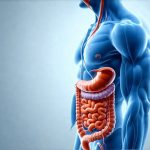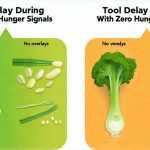Constipation is a common digestive issue experienced by many individuals at some point in their lives. While often viewed as merely inconvenient, it can range from mildly uncomfortable to significantly disruptive, impacting overall well-being. The core definition revolves around infrequent bowel movements or difficulty passing stool, but the experience itself varies greatly between people. A temporary shift in dietary habits, such as intentionally reducing fiber intake for a short period (or unintentionally doing so), can frequently trigger or exacerbate constipation symptoms. Understanding why this happens and how to manage it is crucial for maintaining digestive health and comfort.
The human digestive system thrives on balance, and fiber plays an absolutely vital role in achieving that equilibrium. It isn’t digested by the body; instead, it adds bulk to stool, making it easier to pass, and also helps regulate bowel movements. When a diet drastically lacks fiber – even for just a day or two – the natural rhythm of the digestive tract is disrupted. This can lead to slower transit time (how long waste moves through the intestines), harder stools that are more difficult to eliminate, and ultimately, constipation. It’s important to note that individual sensitivity varies; some individuals might experience noticeable effects after one low-fiber day, while others may not feel a significant impact until several days of consistently reduced intake. You can learn more about supporting your gut health with your first 30 days on a healing diet.
Recognizing Constipation Symptoms on Zero-Fiber Days
The symptoms experienced during constipation brought on by a zero-fiber diet can be quite diverse. It isn’t always simply about the inability to ‘go’. Many people experience a constellation of discomforts that indicate digestive distress. These symptoms can manifest differently depending on individual physiology, hydration levels and pre-existing conditions. Early recognition of these signs is key to proactively managing the situation and preventing more severe issues. If you struggle with gas related to diet, consider a gut reset.
A typical presentation might begin with bloating and abdominal discomfort – a feeling of fullness or pressure even after minimal food intake. This happens because undigested material remains in the colon for longer, leading to gas production and distension. As the stool becomes harder and drier, straining during bowel movements is almost inevitable, potentially causing hemorrhoids or anal fissures over time. Beyond these immediate physical symptoms, some individuals may experience systemic effects like fatigue and loss of appetite due to the discomfort and disruption of normal digestive processes.
It’s important to differentiate between occasional constipation, which can be a normal occurrence after dietary changes, and chronic constipation, which requires medical evaluation. If constipation persists for more than three weeks or is accompanied by severe pain, bleeding, weight loss, or significant changes in bowel habits, seeking professional medical advice is paramount. A temporary zero-fiber day isn’t usually cause for alarm, but it’s a reminder of the importance of fiber and proper digestive health. Understanding GERD symptoms can also help you understand your body’s signals.
Identifying Specific Indicators
Constipation symptoms aren’t always obvious; they can be subtle and easily overlooked. Paying attention to changes in your bowel habits is crucial. Here are some key indicators:
- Frequency: A noticeable decrease in the number of bowel movements you typically have per week. What’s ‘normal’ varies, but a significant deviation from your personal baseline should raise awareness.
- Stool Consistency: Hard, dry, lumpy stools that are difficult to pass. This is often a hallmark sign of constipation. Using the Bristol Stool Scale can be helpful for objectively assessing stool type.
- Difficulty Evacuating: Straining during bowel movements or feeling like you haven’t completely emptied your bowels.
- Abdominal Discomfort: Bloating, cramping, and a general sense of fullness or pressure in the abdomen.
The Role of Hydration
Dehydration significantly exacerbates constipation, especially when fiber intake is low. Fiber absorbs water to create bulkier, softer stools. Without adequate hydration, the stool remains hard and difficult to pass, further slowing down transit time. Proper hydration is not just important for overall health; it’s essential for optimal digestive function.
- Aim to drink at least eight glasses of water per day, although individual needs may vary depending on activity level and climate.
- Increase your fluid intake if you are physically active or live in a hot environment.
- Avoid excessive consumption of caffeinated beverages and alcohol, as these can have diuretic effects (promote fluid loss).
- Consider incorporating hydrating foods into your diet, such as cucumbers, watermelon, and soups. If you’re on a high-protein diet, learning how to minimize bloating is also helpful.
Gentle Movement & Bowel Regulation
Physical activity plays a surprising role in bowel regulation. Exercise stimulates the muscles in the intestines, helping to move waste through the digestive tract more efficiently. Even mild exercise, like walking, can make a difference. A sedentary lifestyle often contributes to constipation, while regular physical activity promotes healthy bowel movements.
- Incorporate at least 30 minutes of moderate-intensity exercise into your daily routine most days of the week.
- Gentle stretching or yoga poses can also help stimulate digestion and relieve bloating.
- Establish a consistent bathroom routine. Trying to go to the bathroom around the same time each day, even if you don’t feel the urge, can help train your bowels. This is often more effective after meals when natural digestive processes are stimulated. You might find what to eat on busy days helps maintain consistency too!
It’s important to remember that while these strategies can offer relief from temporary constipation caused by a zero-fiber diet, they should not be considered substitutes for medical advice. If you experience persistent or severe symptoms, consult with a healthcare professional to rule out underlying medical conditions and receive appropriate treatment. Maintaining a balanced diet rich in fiber is the best long-term strategy for preventing constipation and promoting overall digestive health. Also consider how to reduce bloating if you follow a plant based diet.


















